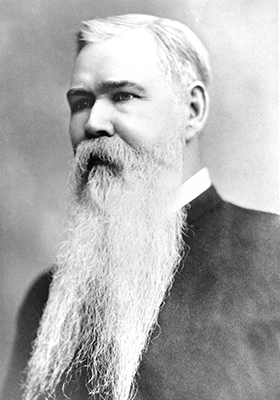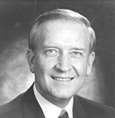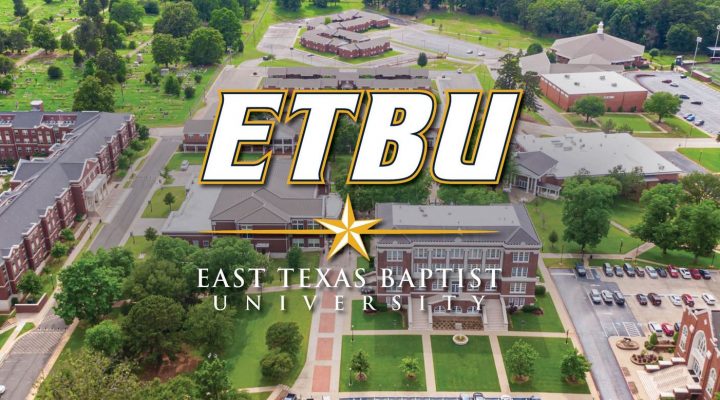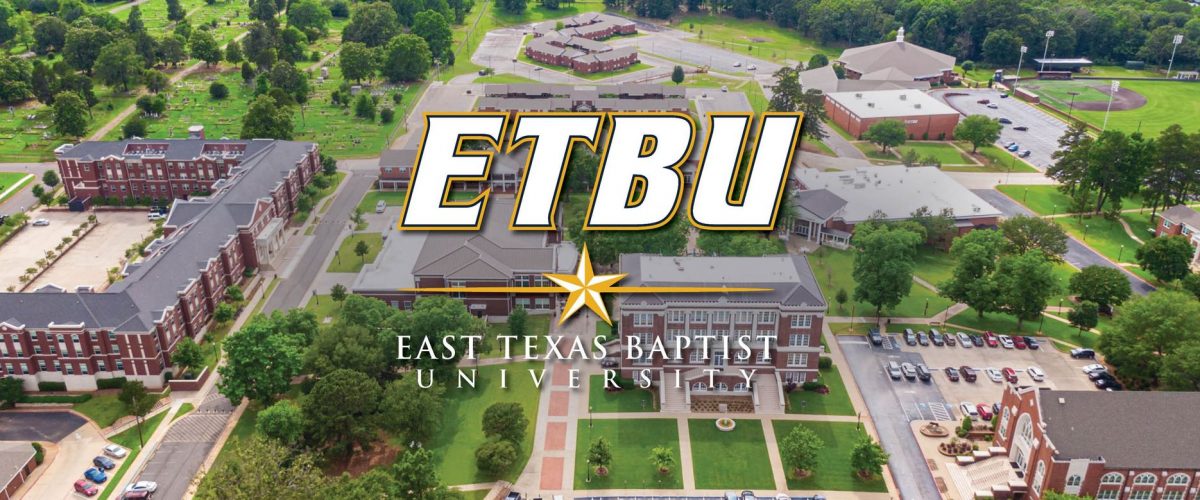The landscape of Baptist theological education is changing yet again, with news that one of the freestanding seminaries created out of the Southern Baptist Convention schism of the late 20th century is merging with one of the oldest Baptist schools in Texas.
East Texas Baptist University, founded in 1912, will take ownership of B.H. Carroll Theological Institute, founded in 2004.
That merger was approved by the governing board of ETBU Feb. 3 and the board of the B.H. Carroll Institute Feb. 6. The deal still requires approval from accrediting bodies. Officials said they expected the details to be finalized between September 2024 and January 2025.
Once finalized, the school will be known as B.H. Carroll Theological Seminary at East Texas Baptist University.
A whole lot of history
Although B.H. Carroll Institute bills itself as an “independent” seminary “born from a rich Baptist heritage,” its birth was distinctly Baptist — as was its namesake. All that makes the school and its upcoming merger part of a much larger puzzle of shifting and competing schools of theology among Baptists.
The very name of the school portends the historical web from which it has come.
The very name of the school portends the historical web from which it has come.

B.H. Carroll
Benajah Harvey Carroll, born 1843, was a Baptist pastor and statesman who helped found the Baptist General Convention of Texas. While pastor of First Baptist Church in Waco, Texas, he persuaded Baylor University to spin off its own seminary to become a new Southern Baptist school 90 miles away in Fort Worth. Thus Carroll was the founder and first president of Southwestern Baptist Theological Seminary, which today is one of six SBC seminaries.
For 70 years, Southwestern Seminary and Baylor University abided by an unwritten agreement that Baylor would educate undergraduates in its religion department and Southwestern would educate graduate students.
That agreement blew apart after a new conservative majority on Southwestern’s trustee board in 1994 fired Russell Dilday as president. Dilday was a popular pastor and academic leader who was himself a graduate of Baylor University and Southwestern Seminary. He would not, however, kowtow to the desires of fundamentalist pastors who wanted the seminary to adhere to biblical inerrancy.
The schism in the SBC created multiple new seminaries, as some Baptists desired alternatives to the six SBC schools that now were fully controlled by fundamentalist boards. Those new schools included Baptist Theological Seminary at Richmond, McAfee School of Theology at Mercer University, Logsdon Seminary at Hardin-Simmons University, Baptist Seminary of Kentucky and George W. Truett Seminary at Baylor University — among others.
The truce was over
The truce between Baylor and Southwestern Seminary was over. Baylor regents — which at that time were more progressive than Southwestern’s trustees — wanted to preserve and improve upon the old Southwestern Seminary legacy. In particular, they wanted to create a seminary to educate future pastors of Texas Baptist churches who would not be subjected to what they considered fundamentalist ideology.
One thing Baylor would not pick a fight over was the legacy of B.H. Carroll.
One thing Baylor would not pick a fight over was the legacy of B.H. Carroll — even though he was attached to Waco and Baylor long before he became the standard-bearer for Southwestern Seminary.
Instead, Baylor chose to name its new seminary for another legendary Baptist figure, George W. Truett, who had been the pastor of First Baptist Church of Dallas from 1897 to his death in 1944. Truett also had Baylor ties, having raised funds to save the school from calamity in 1891 — before he ever enrolled as a freshman there.
In Texas Baptist life, there are no historical names looming larger — in a positive way — than Carroll and Truett.

Russell Dilday
Out of all this history, it was no small thing for Baylor to respond to the encroaching wave of conservatism in the SBC by once again launching its own seminary — which would be a direct competitor to Southwestern — and naming it for Truett. Although the wheels were set in motion before Russell Dilday’s firing at Southwestern, his ouster gave a new opportunity for rapid expansion.
Thus, just a few months after Dilday’s ouster, he was hired by Baylor as a professor of homiletics and acting dean of the one-year-old Truett Seminary.
That would not be Dilday’s final foray into Baptist theological education, however. A decade later, he became founding chancellor of B.H. Carroll Institute. And the four initial faculty members at Carroll all formerly taught under Dilday at Southwestern.
Carroll Institute was the last of the new Baptist seminaries founded in the aftermath of the SBC schism, and it was different from most of the others in that it offered a non-residential model of earning master’s and doctoral degrees.
More tug-of-war
The tug-of-war among Texas Baptist schools was not over, however. After Baylor opened its seminary, Southwestern Seminary opened an undergraduate college. The line of demarcation between undergraduate and graduate education was completely erased.
The line of demarcation between undergraduate and graduate education was completely erased.
Southwestern’s undergraduate college went by a couple of names before it was rebranded in 2021 as Texas Baptist College — a move that stirred concern at both the Baptist General Convention of Texas (which goes by the name Texas Baptists) and ETBU (which had a historical claim on the name Texas Baptist College).
One way of looking at the news of ETBU adding B.H. Carroll Theological Seminary to its schools is as a slap-back at Southwestern for its name infringement. Or maybe it’s just all coincidental.
Merger details
Leaders of ETBU and Carroll Institute issued statements about the compatibility of the two schools and their common mission. No one mentioned Southwestern Seminary.
According to reporting by the Baptist Standard, the ETBU board of trustees is the governing body for the merged institution, and the seminary will have a board of advisers. Some current and past members of the B.H. Carroll board of governors will be merged onto the ETBU board of trustees.
The doctor of ministry degree and doctor of philosophy degrees offered by B.H. Carroll Seminary will mark the first doctoral degrees granted by ETBU.
The new landscape
In Texas, theological education for Baptists once was centered on the I-35 corridor from Fort Worth to Waco.
That shifted when Hardin-Simmons University entered the graduate-level theological education market. In 1995, Logsdon’s School of Theology began offering seminary-level programs, and by 2004 Logsdon Seminary had launched. (Logsdon Seminary closed in 2020.)
 HSU is located in Abilene, which is situated in West Texas. Drawing a line from Waco to Fort Worth to Abilene creates a triangle that covers the center of the state.
HSU is located in Abilene, which is situated in West Texas. Drawing a line from Waco to Fort Worth to Abilene creates a triangle that covers the center of the state.
Later, Truett Seminary began offering seminary classes in San Antonio, which is located in South Texas. A new school, Fletcher Seminary, also recently launched in San Antonio to continue the Logsdon tradition. At various times, Southwestern and other schools have operated extension sites in Houston. Now, Houston Christian University — formerly Houston Baptist University — also offers a master of divinity degree through its School of Theology, not through a seminary.
Amid all these changes, there has been no permanent institutional seminary presence in East Texas for Texas Baptists until now. That has implications far beyond Texas, however, because ETBU is located in Marshall, which lies just 20 miles from the Texas border. It is closer to Shreveport than to Fort Worth and about the same distance from Little Rock as from Fort Worth.
With its hybrid model of online and in-person classes, B.H. Carroll Theological Seminary changes the landscape not only for Baptists in Texas but for Baptists and others in Louisiana, Arkansas and southeastern Oklahoma.
Related articles:
Southwestern Seminary changes name of its undergraduate college
New Texas seminary renamed to honor Jesse Fletcher
What happened at Southwestern and why does it matter?
Hardin-Simmons trustees stand by decision to close Logsdon Seminary


